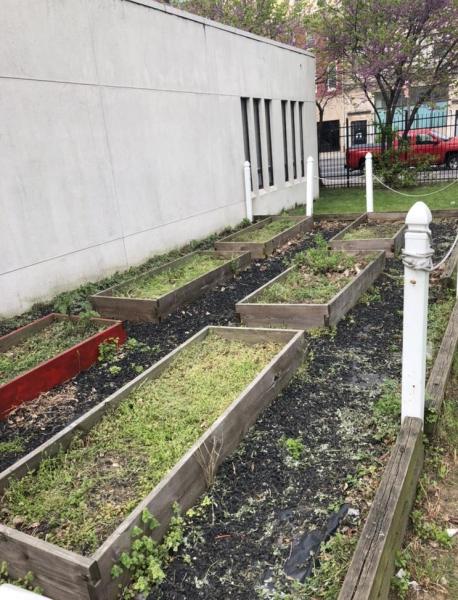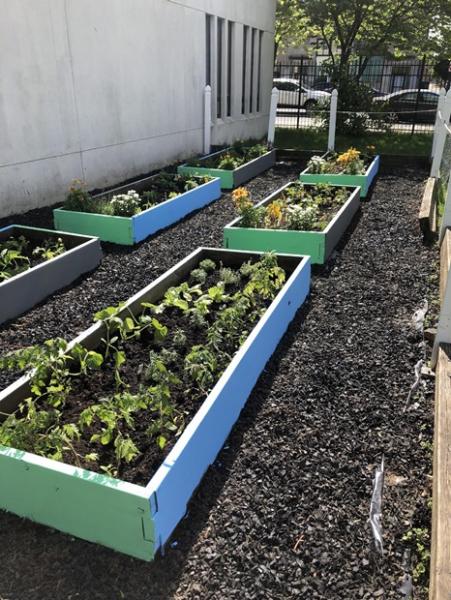When asked what the most meaningful part of my service year was I think of my 6th grade friend who now remembers to take her medicine everyday, my class of 7th graders who refurbished a garden at a local shelter into a beautiful masterpiece, and the parent who told me they feel so much more confident in caring for their child’s asthma after working together. Working with resilient K-12ers in School-Based Health Centers across Philly has been inspiring, eye opening, and completely transformative to my life and for my career.
My favorite project of the year has been a garden project I coordinated and facilitated at one of my schools. I worked with three 7th grade classes (about 65 students total) facilitating curriculum related to agriculture, climate change and nutrition. Students planted seeds in the classroom and excitedly said, “Look Ms. Emily!!!” when they came into the classroom to find tiny sprouts in what had just been a container of soil a few days before. Students cared for their plants, working in groups with their classmates and sharing watering duties. The original plan was to grow the plants to fruition in the classroom because of the lack of outdoor space in the city school environment, but after eyeing a few open beds at the Salvation Army shelter across the street, a partnership was born. Students refurbished the garden at the shelter; they weeded, painted the beds, laid more mulch and planted the started vegetable and herb plants throughout the six beds. Getting to walk kids through an unconventional educational experience where they got to play with dirt, touch worms for the first time and feel the sun on their faces during the school day, all while learning about the importance of eating fruits and vegetables, has been one of the highlights in my professional life to date. We celebrated the kids at the end of the project with a Farm-to-Table dinner as a culmination of their work (and as a way to help them enjoy vegetables). The kids created something beautiful for shelter residents, students and passerby’s to enjoy and the vegetables will all be used in the kitchen at the shelter, increasing healthy options for the residents. The beds will be sustained through shared responsibility with shelter staff and the afterschool program, and the project will scale to more schools in the upcoming school year.
Working with young people to increase health outcomes in the school environment has informed and influenced my aspirations to increase community health outcomes and work for better educational access in under resourced communities. I will carry the resiliency of the kids I’ve worked with and the experiences I have had with me as I venture to grad school at Emory to get my Masters of Public Health in Community Health Development and hope to stay involved in School-Based Health Centers in the Atlanta area.
Before & after photos of the garden:


